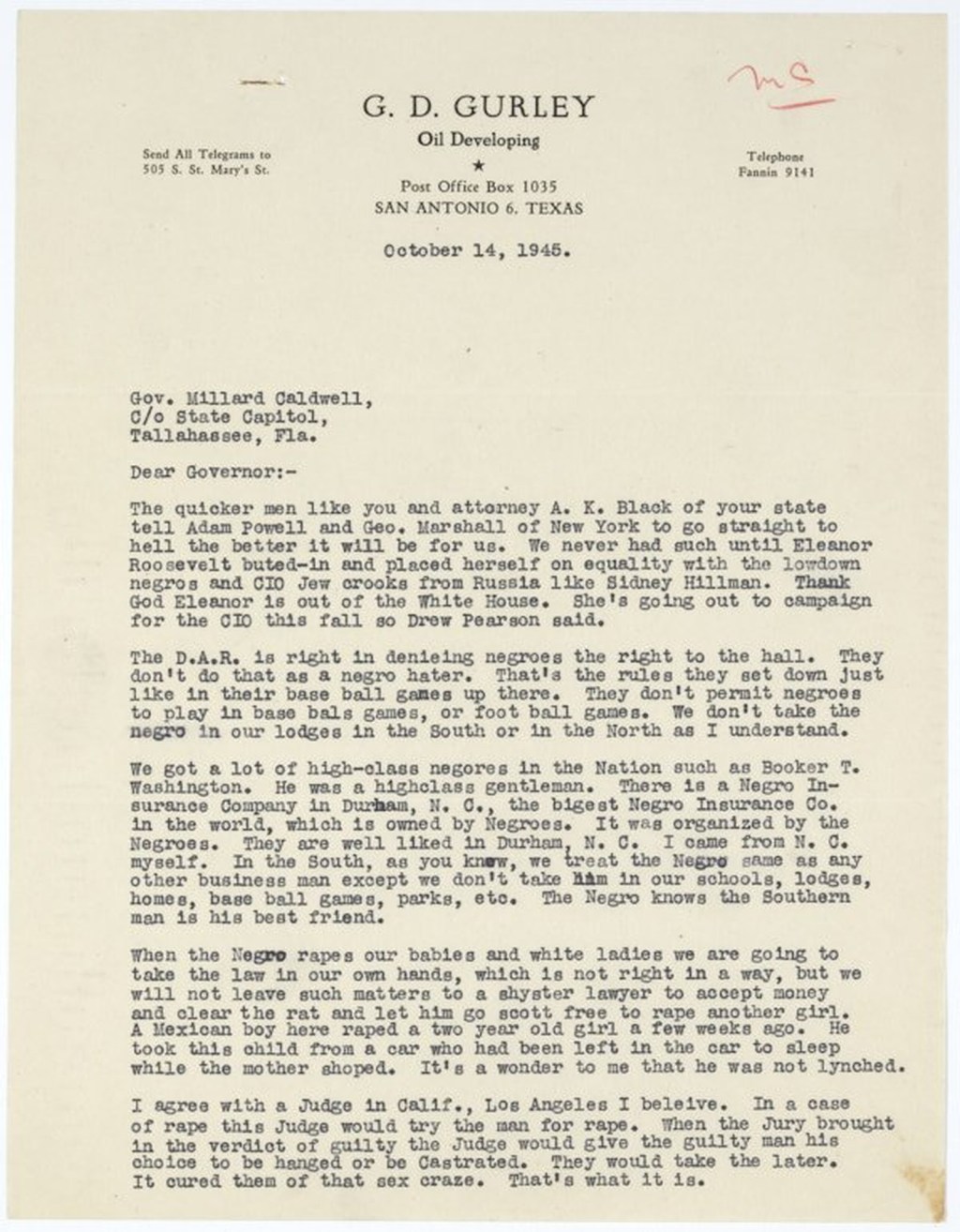Florida
Florida shouldn’t ignore racism’s toll


Gov. Ron DeSantis has a dream. It’s a dream in which Florida lives in a post-racial world — not because he’s dedicated to righting the myriad disadvantages and inequities that beset racial minorities in this state, but because the official policy is that they must be ignored.
He has a dream in which Florida leaders look out over a state where African-American households have lower incomes than any other racial group, and pretend that those families aren’t struggling against systemic economic bias.
He has a dream in which it’s right for the state to scrub mentions of race-based health inequities from its websites (even from the page of the office set up to address minority health concerns) despite the fact that Black and Latino Floridians are far more likely to lack health coverage and to die of preventable diseases.
He has a dream that Floridians can be forced to overlook the injustice of a legal system that still incarcerates young men of color at a far greater rate than any other group.
He has a dream where the children of this state are taught lessons sterilized of the brutal realities they see every day, and their teachers face the risk of litigation if they step over an imaginary line into a forbidden territory dubbed “critical race theory” — or simply offend the delicate sensibilities of a few parents.
He has a dream that makes it acceptable to push for vaguely worded legislation that weaponizes ruinous litigation in service of an official policy of ignorance, and drown out calls for a more just society with a rallying cry for his own political supporters.
We reject this feverish dream for Florida. It is a cruel and suppressive vision, one that pours acid on the still-festering wounds of the Jim Crow era and blocks paths to healing and reconciliation. We call upon members of the Legislature to reject it as well, quashing DeSantis’ proposed law that would enshrine policies of official fiction in statute books.
Have DeSantis and the lawmakers learned nothing from history? Can he not see how silence about injustice equals complicity? Does he not understand how foolish willful ignorance looks, and how his actions will be judged in the future?
A lesson from history
To that end, we direct the attention of DeSantis and his backers to a shameful — and mostly forgotten — tale of another governor who tried to deny racism’s ugliest realities.
His name was Millard F. Caldwell, and at the time he was one of the most wildly popular politicians in the state’s history. He swept into the governor’s office in 1944 with a thundering 83 percent of the vote, the midpoint of a career that would span all three branches of government as well as Congress.
In retrospect, however, Caldwell’s biggest accomplishment was to embarrass Florida with his slavish adherence to the principles of segregation that were being abandoned in other states. Nothing sums up his willful ignorance better than the story of one of Florida’s last lynchings.
The victim was a young sharecropper named Jesse James Payne, and he was hunted, incarcerated on trumped-up charges of rape and eventually slaughtered. A convincing weight of testimony suggests that Payne’s real crime was that of arguing with his white employer — who just happened to be the brother-in-law of the then-sheriff of Madison County. In the aftermath, Caldwell ignored cries for justice — even when it meant arguing, again and again, that Payne’s death was not a lynching despite all evidence to the contrary. Our sister paper, the Orlando Sentinel, laid the story out, complete with photographs and letters Caldwell wrote to outraged Floridians and eminent civil-rights organizations, at orlandosentinel.com/opinion. Suffice it to say this: In the retrospective light of history, Caldwell appears mired in his own weakness and desire to pander to the worst side of human nature — and being forgotten, in his case, seems like a mercy.
Is this the legacy DeSantis wants? A future in which his name is synonymous with blind ignorance, selfish exploitation of injustice and a stony indifference to the suffering of people who deserve to be seen?
If so, this is a dream from which Florida must awaken.
The Sun Sentinel Editorial Board consists of Editorial Page Editor Steve Bousquet, Deputy Editorial Page Editor Dan Sweeney, and Editor-in-Chief Julie Anderson. Editorials are the opinion of the Board and written by one of its members or a designee. To contact us, email at letters@sun-sentinel.com.













You must be logged in to post a comment Login